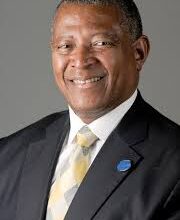Boynton’s court case Honored
Published 8:19 am Wednesday, May 16, 2018
By Adam Dodson
The Selma Times-Journal
The man behind the court case ruling that set legal civil rights precedents for years after is being honored in Montgomery for his dedication and toughness during the Boynton v. Virginia U.S. Supreme Court case of 1960.
The event is taking place at the Freedom Riders Museum and the Frank M. Johnson Courthouse and is sponsored by the Friends of the Freedom Rides Museum, which is operated by the Alabama Historical Commission. His case will be saved in the Alabama archives in Montgomery.
During that time, Bruce Boynton, son of “Courageous Eight” member Amelia Boynton Robinson, got on a bus to take him from Washington D.C. to Montgomery.
When the bus stopped in Richmond, Boynton was told he was not allowed to sit on the white side of a local restaurant. When Boynton refused to leave his seat, the situation escalated to the point where he ended up arrested and booked for his actions.
Boynton’s argument from the very beginning was that he was protected from state segregation laws due to his participation in interstate commerce as a paying customer of the busing system. However, lawyers and justices in Virginia did not see it that way, and had to appeal his case all the way to the United States Supreme Court.
It was there where Boynton found the justice he had been looking for, with a 7-2 vote in his favor.
Boynton v. Virginia established that it is unconstitutional for a man participating in interstate travel to be arrested for state segregation laws surrounding restaurants.
The case set precedents that protected numerous African-Americans and led to further cases striking down segregation.
“It was an issue the court had never decided before,” Boynton said. “For the longest there was not very much publicity, but now I am pleased because people started to pay attention.”
“Nobody cared originally. I was elated because it was a victory needed for me to practice in Alabama.”
Throughout America’s legal history, the U.S. Supreme Court has been able to use the Interstate Commerce Act to strike down racial profiling and discrimination in a variety of situations regarding many different states.
Boynton’s case was no different, as he received the ultimatum of his due process from the court opinion of Chief Justice Hugo Black.
With Boynton being an agent of interstate travel, he was in his rights to expect non-discrimination at a restaurant located at one of the bus route’s stops.
However, Justices Charles E. Whittaker and Tom C. Clark saw things differently. In their dissenting opinion, the Justices agreed that the restaurant had no ties to the bus system other than the location and was privately owned.
In their eyes, the restaurant reserved the right to discriminate against African-Americans participation in the bus routes because the bus company, Trailways, owns no stake in the local venue.
As more people started to recognize Boynton for his contributions to African-American society, Boynton began feeling more appreciated.
“When I had cancer, I had been going to the doctor in Alabaster for treatment. The first time I met him he recognized my name from the Boynton v. Virginia case,” Boynton said. “That made me feel very good.”
The event begins at 2 p.m. Friday, and will not allow any photos or cameras during the operations to ensure respect for Boynton with no distractions.
For more information about the event, visit the Freedom Rides Museum website at www.freedomridesmuseum.org/events.
For more information about the Boynton v. Virginia case, look up “Boynton v. Virginia, citation 364 US 454 (1960).”





